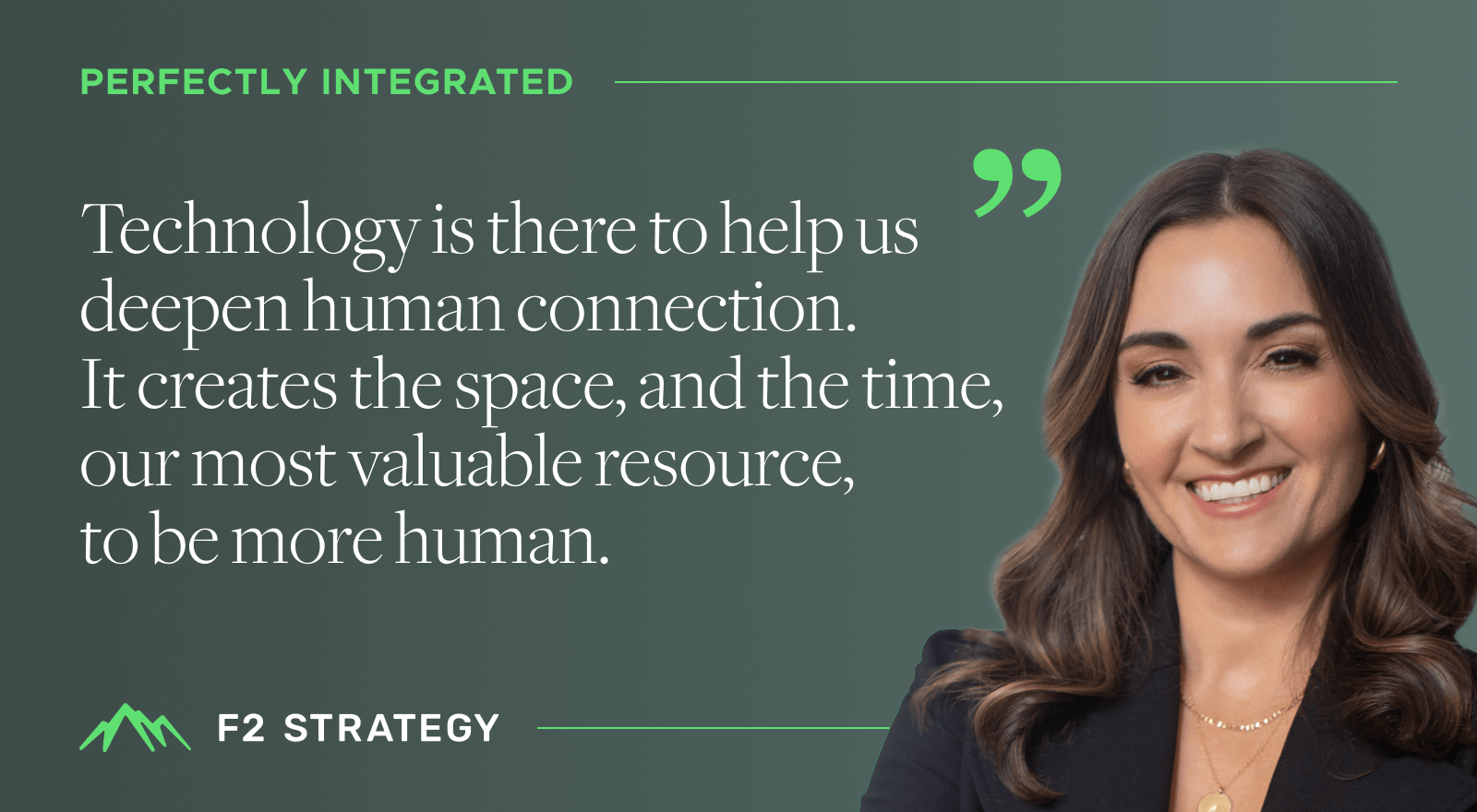
Earlier this year, I was struck by the image of Whitney Wolfe Herde, CEO and cofounder of Bumble, a social and dating app, ringing the stock exchange bell while holding her one-year-old son. Whitney became the world's youngest female self-made billionaire after taking Bumble public that day and the youngest woman to take a company public, at age 31. For me, that image raised a lot of questions about women in business, including what did it take for her to get to that moment where she seemingly “had it all” (balancing career and family)? How was she empowered to achieve?
I’m the co-founder of a wealth management technology consulting firm (F2 Strategy) myself and I’ve been a working mom in corporate finance for many years before that. I find that in this industry in particular women continue to struggle to find support within their firms for their caregiving roles—whether that’s caring for their children or their aging parents. And, on top of that, because women aren’t often breadwinners in their families they will occasionally self select to sidetrack their own careers for the good of those that depend on them. They regularly put themselves last. Case in point, I took two years off after having our first son. And, despite my experience and expertise, when I built our 2021 content strategy to showcase the expertise of our firm, I didn’t even think to include myself on the list of subject matter experts!
Unfortunately, Whitney’s story isn’t the norm. Today, women make up only 22% of the C-Suite. So when I watched her hold her baby and ring that bell, I thought, how can we set all women up for this type of business success?
In wealth tech, I think the answer revolves around a central idea that companies need to build a culture of space, tolerance and capacity for women to perform at their best as caregivers and as business leaders.
Space
When women feel squeezed between all of their roles, they often see no other solution than to leave the workforce. We’ve seen that in stark numbers during the pandemic. According to a McKinsey report “Women in the Workforce”, women are more likely than men to feel a lack of flexibility at work, feel like they always need to be “on” and worry that their performance is being negatively judged because of their caregiving responsibilities. This is bad all around—women lose the opportunity to develop and companies lose valuable talent.
Giving women the space to balance all of their roles ultimately helps companies thrive. Companies can provide this space through:
- Remote working options—if we were unsure about this concept before, thanks to the pandemic we now know this can work. However, along with allowing or offering remote work, we have to empower employees to set boundaries, respect their time, offer flexible timing to get work done and accept that their time off is to take care of someone else or themselves.
- Family-friendly HR policies—add benefits such as subsidized child or elder care; employee funds where a percentage of the healthcare benefit is a fund employees can tap into when needed; and at least six months of paid family leave for moms and dads, because we really need to give dads the space to help out with caregiving responsibilities. Options for child care programs already exist through companies like Bright Horizons, Vivvi (in downtown Manhattan) and care.com. As far as paid leave goes, take it up a notch and make it giftable or flexible like Amazon.
Tolerance
The second area for growth in most wealth tech companies is tolerance. They need to continually address gender bias and improve and enforce non-discrimination policies.
This starts by allowing women to be transparent about their caregiving needs. In my corporate role I had to hide that I was a new mom. I was told by other women to hide my kids’ doctors appointments because others would perceive me as unreliable or distracted. In reality I think nothing could be further from the truth. A working mom’s brain is like O’Hare airport—it’s incredibly busy with thousands of conflicting needs, but operates like a choreographed dance, everyone gets where they need to be and everything gets done. Because of this, when I interview a working mom I’m positive she can get the job done.
If there has been a silver lining in the pandemic, we’ve seen through the facade and into coworkers’ houses, clothes and kids. Turns out they are people too! Let’s continue to know them on a personal level. Companies that shift their culture to value caregiving and see benefits in prioritizing, multitasking and maximizing time will retain top talent more easily.
Leadership is critical in this area. They need to lead by example and show the team from top down that it's not just all about work. We want employees to be whole and complete people. Show that it's ok for both men and women to prioritize different parts of their lives. We do this at F2 by allowing our kids to come in during team Zoom meetings and say a quick hi or give a tour of a new home project we are working on while the kids are on virtual school. We like to show that being a caretaker is important to us and that our team being caretakers is important to us.
Capacity
Finally, capacity gives women the ability to grow in their careers, develop leadership skills and rise to executive positions.
Some ways wealth tech companies should support women in their workforce are to:
- Form or provide access to dedicated support groups and mentorship opportunities
- Provide access and time to pursue continuing education and opportunities to earn additional credentials
- Allow transparency about salary. The stigma around talking about money has to go. Make it ok to be open about money from the very beginning of a career and during the interview process. Companies should post positions’ compensation to ensure fairness. It’s the only way women can close the wage gap. If they don’t know how much their male counterparts make, how can they know what to ask for or what their work is worth to the company.
My final idea is less about corporate culture and more about our society—we need more women supporting other women in their careers. We must challenge the idea that we are all in competition for a few coveted roles and promote each other. We should be “liking” or sharing about other women’s successes or businesses.
Implementing space, tolerance and capacity as standard practices within our industry will go a long way in allowing more women to reach their potential as Whitney Wolfe Herd has done. This type of company culture allows caregivers to “do it all” without feeling like they have to sacrifice an area of their life in order to meet expectations. Companies can begin small and build. Ask what can you do personally? What can your company do? For example, F2 advocates for more female speakers on its panels and on the panels it participates in. We’re also launching a #WomantoWatchinWealthTech series later this month on our social channels. We’re using this new initiative to regularly spotlight female leaders in Wealth Tech. Finally, we’re continuing to look for ways to support women and families in our company, women in Wealth Tech and women breaking into the field. I’ll have a lot more to say on this topic in the coming months. I hope you’ll share your ideas with me as well.


.png)


